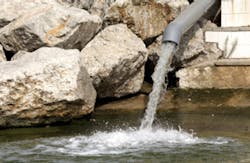EPA finalizes cleanup plan for LCP Chemicals Inc. Superfund site in New Jersey
NEW YORK — The U.S. Environmental Protection Agency (EPA) has finalized its plan to address the contaminated soil and groundwater at the LCP Chemicals Inc. Superfund site in Linden, N.J., according to a press release.
The soil, ground water and sediment from a stream on the site were contaminated with mercury and other pollutants from previous industrial activities, noted the release.
The final cleanup plan requires demolishing the contaminated buildings on the site, treating some of the contaminated soil, capping all of the soil and treating the contaminated ground water, the release reported.
Exposure to mercury can damage people’s nervous systems and harm the brain, heart, kidneys, lungs and immune systems, continued the release, while mercury in soil and sediment can also impact fish and other wildlife.
According to the release, the Superfund program operates on the principle that polluters should pay for the cleanups rather than passing the costs to taxpayers, and after sites are placed on the Superfund list of the most contaminated waste sites the EPA searches for parties responsible for the contamination and holds them accountable for the costs of investigations and cleanups.
Read the full release here.
